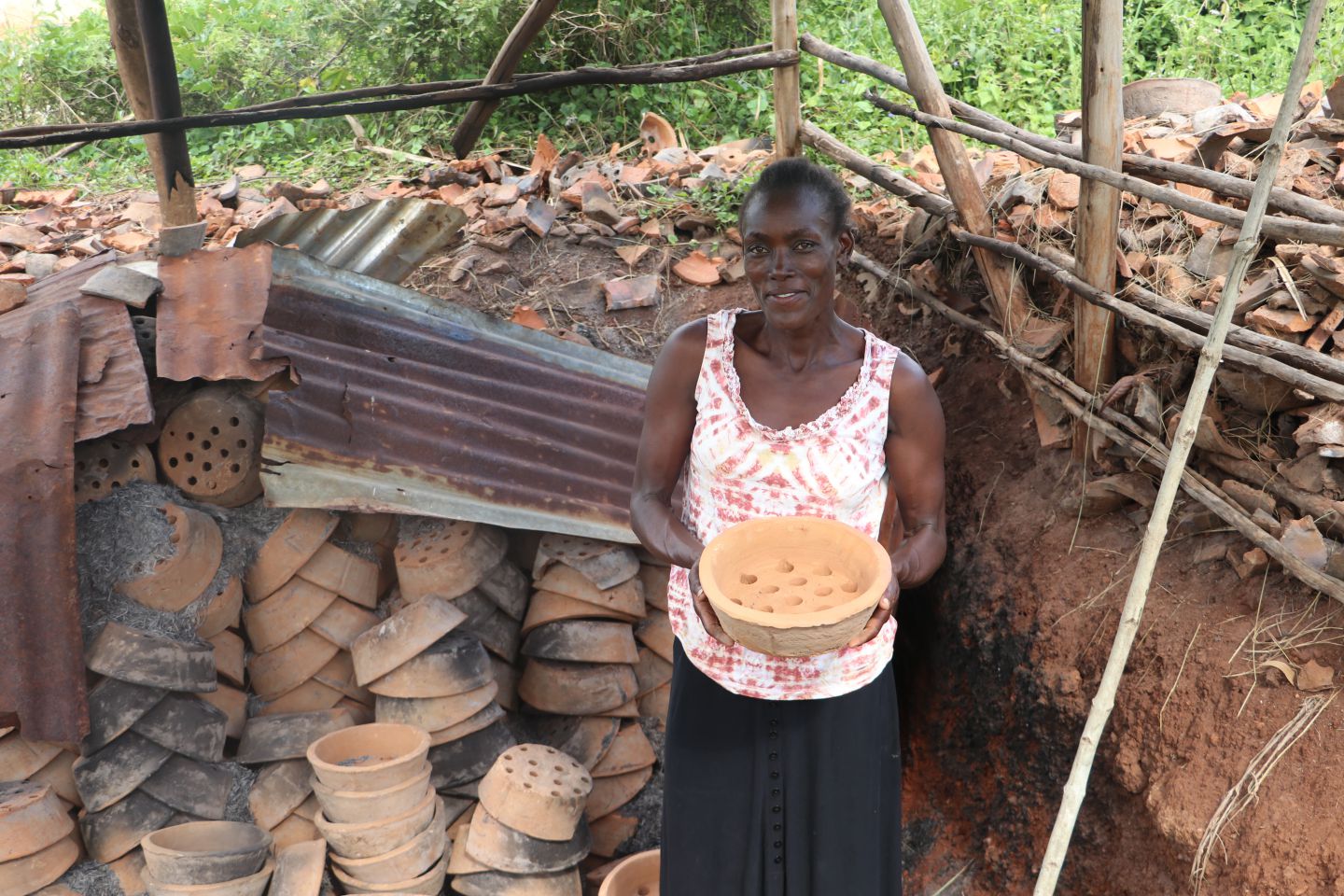Rose Onyango is an energy entrepreneur engaged in the production of Improved Cookstoves (ICS) liners in Nyahera village, Kisumu County, Kenya. She is a married mother of four children: two in Primary school level, one in Secondary level and one at Tertiary education level. Before joining the energy business, Rose was engaged in farming activities. However, this could not meet her family’s financial needs. The husband was not supportive in providing some of the family basic needs, like proper nutrition and clothing, and other essential needs, like paying school fees and proper medical care.
In 2016, her monthly income from farming averaged at Ksh 3,000 (USD 28) and she decided to embrace ICS liner production to boost her income. Learning the production skills was easy as she had interacted with her neighbors, who were already engaged in this activity. The required raw materials were also readily available.
Although a fast learner, Rose was challenged with other aspects of business management such as product marketing, accessing business capital and generally managing the business due to lack of skills.
In 2019, Rose heard about Practical Action and the Women in Energy Enterprises in Kenya (WEEK II) Phase Two project from a fellow woman entrepreneur. Within a short time, she was enrolled for a training on business development skills, agency empowerment and self-leadership. The training on agency empowerment motivated her to reflect on her life status and push on towards a better future.
As a woman you just don’t sit down and wait, you have to get up and seek income despite the challenges you face.
In addition to the inspiration received from the agency empowerment component of the training, she has been able to network with other women entrepreneurs in the different value chains of clean energy. “I was able to access other quality energy products such as solar, briquettes and complete cook stoves”, continues Rose.
Through her new networks, she joined other women entrepreneurs in the project and formed a still active local group named ‘Energy Savers Women Group’. The group members save and lend money to each other. Rose is the treasurer of the group and besides handling the finances, she has participated in making critical decisions to address group differences and providing solutions. Her attitude helped to create a peaceful coexistence among the members and a stronger group.
Rose also receives regular business mentorship from the project. The mentorship sessions have encouraged her to practice proper record keeping and apply economies of scale in her work through mass production of liners to save on the expenses involved. Rose proudly says that her income has steadily risen to a minimum of Ksh 18,000 (USD 166), sometimes rising to Ksh 40,000 (USD 367) per month. She is now earning a good income that has enabled her to contribute towards taking care of all household financial needs, including paying school fees for her four children.
Business during COVID-19 Pandemic
Since the outbreak of COVID-19 pandemic in Kenya, measures were undertaken by the government to limit the spread of the virus, such as limitation of movement, cessation of social gatherings and closure of major markets. Rose, just like many other entrepreneurs within the country and around the world, has experienced several challenges, including being unable to reach her customers by moving and selling in different markets. This caused a reduction of her income from a minimum of Ksh 18,700 (USD 172) to Ksh 8,000 (USD 74) per month. This has made her to look back at her farming business, which she relies on to feed her family, while saving up the amount from the energy business for other basic needs and her children’s school fees.
Rose plans to gain further skills on product assembling so as to engage in production of complete stoves and enjoy the benefits that come along with it, such as increased customer base and income. ‘‘I’ve moved many steps from where I was. From sitting down waiting for money from my husband to now seeking and earning my own. This really makes me feel good about myself”.
This story was created in collaboration with our partner, Practical Action in East Africa.







